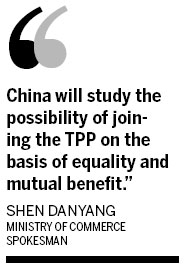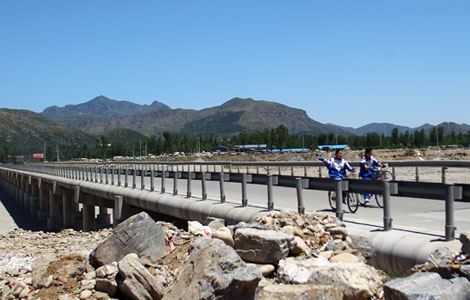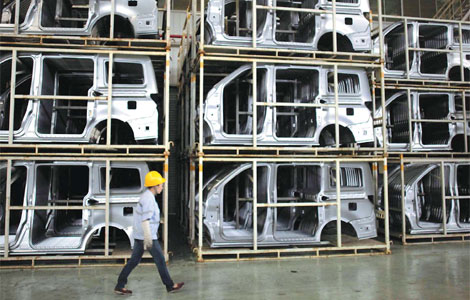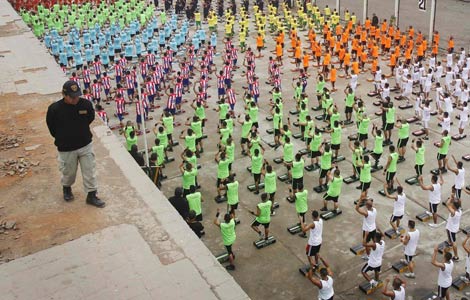'Disruptive, lacking in economic sense'
Updated: 2013-06-18 07:24
By He Wei (China Daily)
|
|||||||||||
Editor's Note: As the United States pushes for the establishment of the Trans-Pacific Partnership, it has raised wide concerns whether the attempt is meant to contain the development of the world's second-largest economy. Below are two opposing views from economists and researchers:
Two parallel trade agendas in Asia have led to widespread concern among observers over whether the United States intends to encircle China via economic means.
The Asian track of free trade talks, namely the Regional Comprehensive Economic Partnership, is largely being driven by the Association of Southeast Asian Nations.
It aims to bridge differences and provide more direct interactions among major economies that are hampered by history or geopolitics.
The Asia-Pacific track, while initiated by four small APEC economies including Singapore and Brunei, was energized by the entry of the US in 2009. In the best scenario, it might eventually lead to a region-wide Free Trade Area of the Asia-Pacific.
According to Vo Tri Thanh, vice-president of the Central Institute for Economic Management in Vietnam, the Asian template has more room for exceptions and avoids imposing constraints on the domestic regulations of economies at different levels of development and with different political systems.
"While Asian agreements typically seek gradual liberalization, the Trans-Pacific Partnership strives to create a comprehensive, '21st century' template for economic partnerships and seeks to develop common, high-quality rules to restrict possible interference with international commerce," he said.
China's attitude toward the TPP has grown more open, based on recent remarks from government officials. For instance, the spokesman for the Ministry of Commerce, Shen Danyang, said in May that China "will study the possibility of joining the TPP on the basis of equality and mutual benefit".
Hong Lei, spokesman for the Ministry of Foreign Affairs, said China is open-minded about the TPP initiative, saying it is conducive to economic integration and common prosperity in the region.
But he suggested that differences among Asian economies be taken into account, and he added that concerned parties should set standards of relevant trade agreements in line with actual international trade conditions and individual nations' realities.
Hong also warned that excessively tough standards may exclude developing economies from trade agreements, affect the agreements' validity and damage the interests of all concerned parties.

The TPP mechanism is being politically hijacked by the US, said Tan Khee Giap, co-director of the Asia Competitiveness Institute at the National University of Singapore's Lee Kuan Yew School of Public Policy.
As one of the founding members of the TPP, Singapore is "greatly disappointed" by recent developments related to the fledging agreement, Tan said during the annual Shanghai Forum at Fudan University.
Singapore is now as supportive of the Regional Comprehensive Economic Partnership as it is of the TPP, its own initiative.
The RCEP is a 16-party free trade agreement that would include ASEAN members plus Australia, China, India, Japan, South Korea and New Zealand.
Related Stories
China hopes for transparent US-led TPP talks 2013-06-01 09:30
China to study possibility of joining TPP 2013-05-31 02:11
Factories to face headwinds from enlarged TPP 2013-04-25 02:48
Door to TPP is open for China, says US 2013-03-22 01:25
TPP may drive BRICS into action 2012-09-06 07:54
Today's Top News
China's home price rise continues to slow
China rejects Snowden spying claims
Putin, Obama face off over Syria
China to hold talks with DPRK
3 charged over attack on Chinese
G8 kicks off amid controversy
Travel becomes a family affair
Weibo draws more than just locals
Hot Topics
Lunar probe , China growth forecasts, Emission rules get tougher, China seen through 'colored lens', International board,
Editor's Picks

|

|

|

|

|

|





